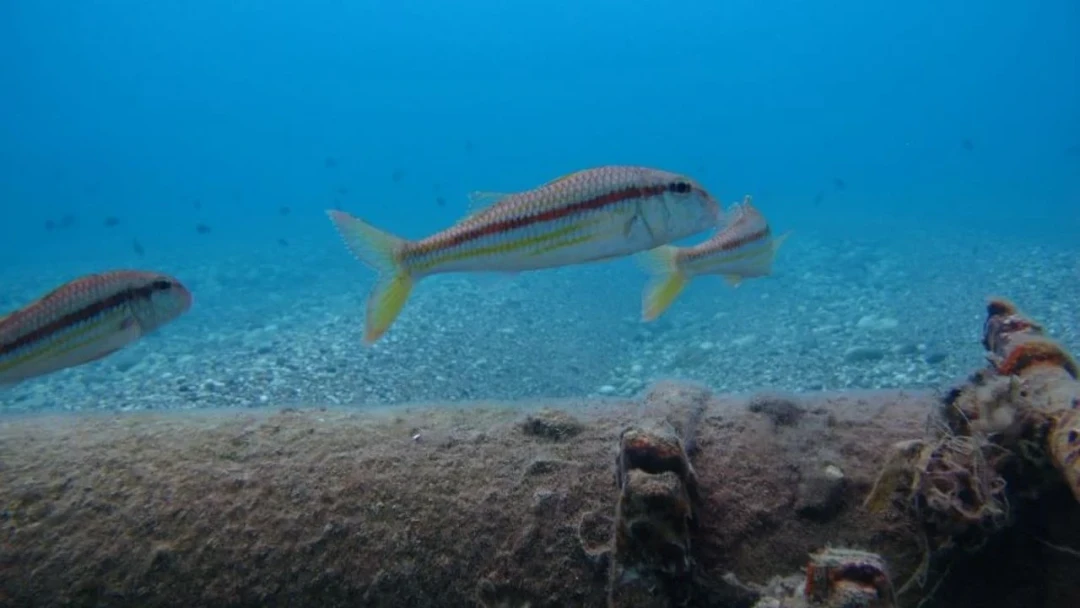Marine life is under threat in the Mediterranean! The sea’s ecosystem is changing

For the past two years, record-breaking sea water temperatures in the Mediterranean have been destroying native fish species and invertebrates. Professor Dr. Mehmet Gökoğlu stated that the Mediterranean is beginning to tropicalize: "The Mediterranean is increasingly becoming tropical. Changes are occurring in the Eastern Mediterranean ecosystem. Invasive foreign species have started to appear."
In Antalya, the record-breaking sea water temperatures of the past two years are destroying native fish species and invertebrates. Professor Dr. Mehmet Gökoğlu pointed out that the temperature, which reached a high of 28 degrees Celsius last year, has now risen to 31-32 degrees Celsius. He noted that due to the rising temperatures, native species are being replaced by invasive species. Gökoğlu said, "The increase in sea water temperature affects fish migrations, their reproduction. In extreme cases, diseases can also appear in fish. Posidonia seagrass (Posidonia oceanica) along the coasts has started to die because the water is too warm. Posidonia seagrass was the 'Amazon rainforest' of the Mediterranean."
LIFE IN THE MEDITERRANEAN IS UNDER THREAT
The Mediterranean Institute of Marine Sciences (ICM) has announced that the average sea water temperature has risen to 28.9 degrees Celsius. According to the Intergovernmental Panel on Climate Change (IPCC) forecasts, if global temperature increases by more than 1.5 degrees Celsius compared to pre-industrial levels, 20% of the fish and invertebrate species in the Eastern Mediterranean could disappear. Last year, the highest recorded sea water temperature in Antalya was 28.7 degrees Celsius in July 2023. This year, the sea water temperature has risen to 32 degrees Celsius, leading to the disappearance of many fish species and marine life.
INVASIVE SPECIES FROM THE RED SEA BEGINNING TO APPEAR IN THE EASTERN MEDITERRANEAN
Professor Dr. Mehmet Gökoğlu from the Faculty of Fisheries at Akdeniz University noted that due to global warming, many invasive fish species from the Red Sea have migrated to warmer waters, and the Mediterranean is beginning to tropicalize. He highlighted that the warm winter caused by climate change has also put pressure on native fish species. Gökoğlu said, "The sea water temperature is currently ranging between 31 and 32 degrees Celsius. This temperature is high for the Mediterranean. We had a warm winter, and the increase in sea water temperature puts pressure on native species. It causes changes in their habitats because the temperature has risen to levels that some fish cannot tolerate in certain coastal areas. As a result, some fish may move away from the coasts, and the Mediterranean is becoming increasingly tropical. Changes have begun in the Eastern Mediterranean ecosystem, and invasive species have started to arrive. A good example is how the Red Sea Japanese sardine is beginning to replace our local sardines and anchovies. On our coasts, the forskali barbut species is beginning to replace the local red mullet. Our garfish and striped sea bream are being replaced by a fish called the throat. While local fish are retreating to cooler northern waters, foreign species are filling the void."
"POSEIDONIA SEAGRASS WAS THE 'AMAZON RAINFOREST' OF THE MEDITERRANEAN"
Professor Dr. Gökoğlu pointed out that the increase in sea water temperature not only affects fish migrations and reproduction but can also lead to diseases in fish during extraordinary situations. Gökoğlu said, "Due to the excessive water temperature, Posidonia seagrass along the coasts has started to die. Posidonia seagrass was the 'Amazon rainforest' of the Mediterranean, where fish larvae would enter and find shelter, feed, and reproduce. If you destroy these areas, you also destroy the fish. Humans are exerting irreversible control over nature; there is always a human element behind everything. We need to ensure that river waters reach the sea and abandon excessive irrigation. Rivers prevent the warming of seas. However, we have dammed all the rivers, holding back their waters and not supplying the seas as much as we used to. This is why the Eastern Mediterranean is the most affected region by global warming. This is the area where we are located."
FISH POPULATION HAS DISAPPEARED OVER 45 YEARS
Ahmet Boyacı, who has been fishing at Kaleiçi Yacht Harbor for many years and inherited the profession from his father, Hakkı Boyacı, who has been fishing at the harbor since 1968, said that the fish population has greatly diminished over the past 45 years. Boyacı noted, "Looking at what my father used to describe, we can see that the fish population he talked about has almost disappeared. Considering the quantities caught with our nets, it has decreased to almost nothing. We can count the temperature, sea water temperature, human population, waste from this population, and invasive fish species from the Red Sea as the main reasons. With the increase in water temperature, the existing fish population is moving to deeper, more distant, cooler waters, and we are experiencing significant difficulties in this regard. The muddy and desert-like surface of the bay and the lack of places for fish to hide or build nests also contribute to the disappearance of the population. Comparing with last summer, when we traveled along the coast, there was a fish we call melanur that appeared seasonally. This year, I do not remember catching any. It is almost nonexistent."


